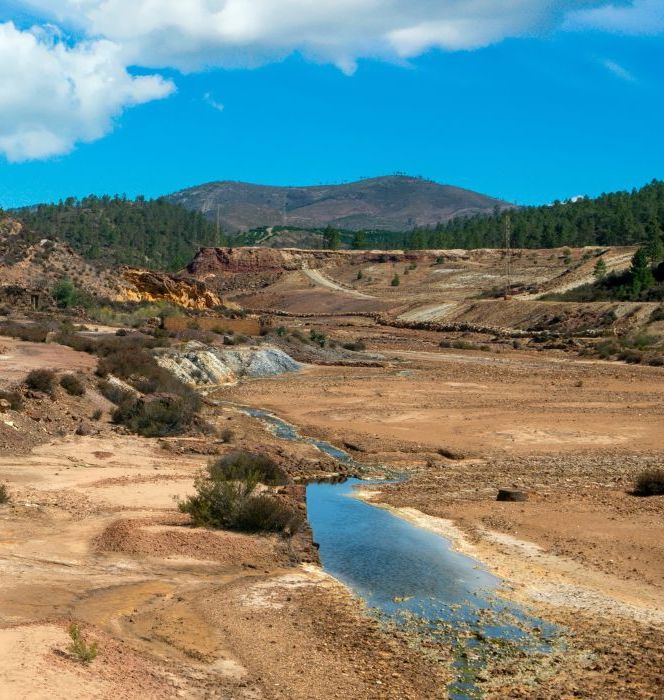The world of business and investment is undergoing a significant transformation, with an increasing focus on sustainability and responsible practices. Within this context, Zimbabwe’s mining industry is facing a crucial moment, as it grapples with the necessity to incorporate environmental, social, and governance (ESG) reporting principles into its operations.
Currently, the country’s record on sustainable mining and social protections is despicable and with increased investments in lithium and other minerals exploration, the problem can only be expected to grow.
ESG Reporting in Mining
As global stakeholders place greater emphasis on sustainability and responsible business practices, the requirement for ESG reporting in the mining sector becomes increasingly vital. ESG reporting encompasses a comprehensive set of standards that assess a company’s conduct in environmental, social, and governance realms. It extends beyond traditional financial system of measurement, to providing investors and stakeholders with insights into the overall impact of mining operations. Zimbabwe’s mineral wealth has led the country to rely on the mining sector for economic growth, replacing Agriculture which once placed the country as the breadbasket of Southern Africa.
Environmental Concerns
Zimbabwe has ambiguities withing its existing laws on environmental management, Section 100 Consideration of environmental impact assessment report and issue of certificate, subsection 3c of the Environmental Management Act does not clearly give how the law empowers communities to hold agencies accountable, like on issues to do with rehabilitation as part of monitoring mining activities. With the growing exploration and extraction of mineral resources the environmental repercussions in Zimbabwe are immense. Mining activities not only increase the impact of climate change but operational effects also lead to water scarcity, loss of biodiversity, habit destruction and pollution, hence the mining industry bears a significant responsibility in mitigating these ecological footprints. Rivers ‘have been and remain’ at high risk of being contaminated by the discharge of potentially toxic chemicals from mineral extraction. Without diligent reporting, the consequences of mining operations in Zimbabwe can be catastrophic as host communities will continue to encounter unbearable working conditions and environmental footprints by mining companies.
Social and Governance Concerns
In addition to environmental considerations, the social and governance aspects of ESG reporting hold equal importance. Employment and labour issues, employee benefits, health and safety, human rights, community relations, and how broad-based economic empowerment can be advanced to communities by mining activities are integral components of sustainable and responsible mining. Governance matters such as anti-corruption measures and board oversight play a crucial role in ensuring ethical and responsible conduct within the mining industry, and for enhanced transparency and accountability mining companies need to adopt ESG reporting.
Legislation and Policy Concerns
Zimbabwe’s current legislative framework lacks comprehensive provisions for ESG reporting to support social and economic rights concerns that emanate from mining activities. The country lacks legal framework on Free, Prior and Informed Consent (FPIC) the right of indigenous people to give or withhold their consent for any action that would affect their lands, territories, or rights and sharing of mining royalties between the central government and local authorities and the communities. Zimbabwe still lacks a clear and legally binding framework on investment-related displacements that are essential to addressing environmental impacts, water access and other human rights concerns that emerge from mining activities. The Zimbabwe Development and Investment Agency (ZIDA) Act requires investors using ZIDA to protect the environment and operate responsibly, but the lack of regulations on responsible investment at ZIDA is hindering efforts to hold the investors accountable.
Zimbabwe Stock Exchange (ZSE) and VictoriaFalls Stock Exchange (VFEX) listed companies in Zimbabwe adhere to ESG reporting requirements, in terms of the Statutory Instrument 134, securities and exchange (ZSE Listing Requirements) rules of 2019. Non-listed entities operate with less scrutiny, posing potential risks to environmental and social welfare. Apart from the listed companies ESG reporting is yet to gain traction in Zimbabwe, only a few mining companies are listed on the ZSE and VFEX which are Rio Zim, Hwange Colliery, Caledonia Mining Corporation and Bindura Nickel Corporation. In 2023 SI 134 improved ESG reporting for listed companies to report on sustainability issues as part of their financial disclosures in line with Practice Note 16 issued on 13 November 2023 and took effect from the 1st of January 2024. A clear and binding legal framework that encompasses issues of greenwashing and ESG reporting for all mining operations should find a way into the mines and minerals act.
Current driving concerns
The necessity to expand ESG reporting, policy, and monitoring in Zimbabwe is evident, especially in the context of lithium exploration and extraction activities crucial for the global energy transition. Zimbabwe holds Africa’s top lithium deposits and 5th largest in the world which has placed the country on the spotlight to contribute almost 20% of the world’s lithium required for battery manufacturing and already several lithium exploration and extraction activities are taking place in the country which increases the pressure to broaden ESG reporting, policy and tracking record. Placing Zimbabwe lithium at the heart of the global energy sector if not managed properly in a comprehensive policy environment can deepen economic and social inequalities linked to mining. ESG reporting by mining companies, ensure that sustainable and responsible practices are ingrained in the core of mining operations while battling the growing demand for lithium.
Challenges and Urgency
The ‘resource curse’ phenomenon has afflicted Zimbabwe as a result of several gaps within the natural resources governance system, causing widespread environmental degradation, pollution of water systems, loss of livelihoods, forced evictions and relocations, drug shortages at local hospitals and clinics, dilapidated school infrastructure, collapsed bridges and poor road networks in areas where mining is taking place. The lack of strong ESG reporting regulations exacerbates these challenges, necessitating urgent action to address deficiencies in mineral resource governance systems.
The urgency to adopt and implement ESG reporting standards in mining activities is underscored by the potential for permanent harm to the environment and local communities if sustainable practices are not prioritized. Zimbabwe is home to over 60 types of minerals that can be commercially extracted and ESG rules and protocols should be of key concern to the sector.
Call for Responsible Mining
The adoption and advancement of ESG reporting in Zimbabwe’s mining sector have the potential to revolutionize the industry, aligning it with global sustainability standards and fostering responsible practices. By embracing ESG principles, mining companies can not only enhance their reputation and competitiveness but also contribute to the well-being of the environment and local communities. The time for sustainable reporting in Zimbabwe’s mining sector is now, and concerted efforts from stakeholders, government, and advocacy groups can pave the way for a more sustainable and equitable future.
Green Governance Zimbabwe (GGZ) is at the forefront of advocating for sustainable reporting in Zimbabwe’s mining sector. Through research, advocacy, and collaboration, GGZ aims to elevate the discourse on ESG reporting, drawing inspiration from global best practices and urging the government to prioritize sustainable mining practices. By fostering a culture of transparency and accountability, GGZ seeks to catalyse positive change in the Zimbabwean mining industry, ensuring that the country’s mineral wealth is harnessed equitably and sustainably. GGZ, even suggest making it a criminal offence for noncompliance.




